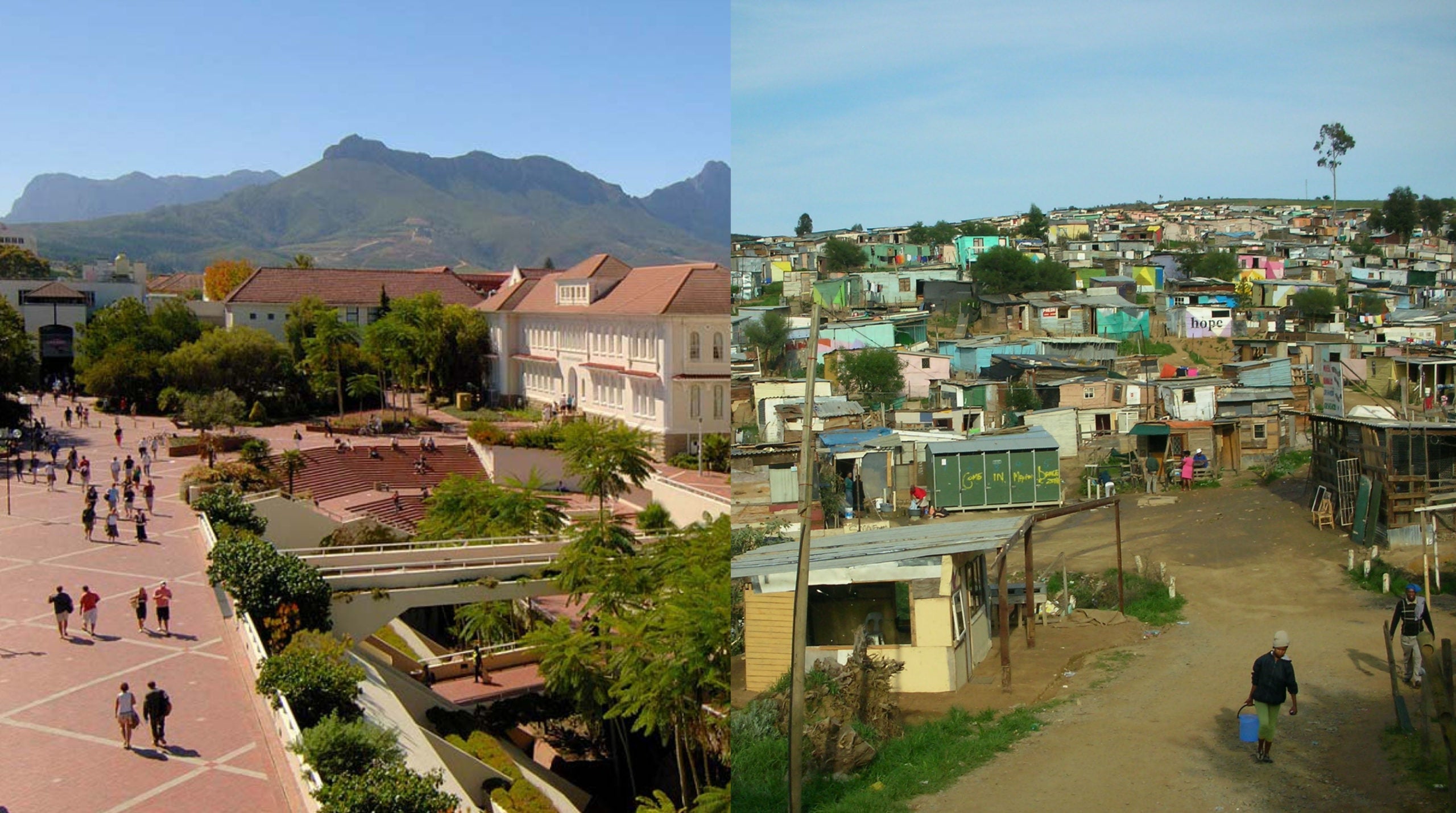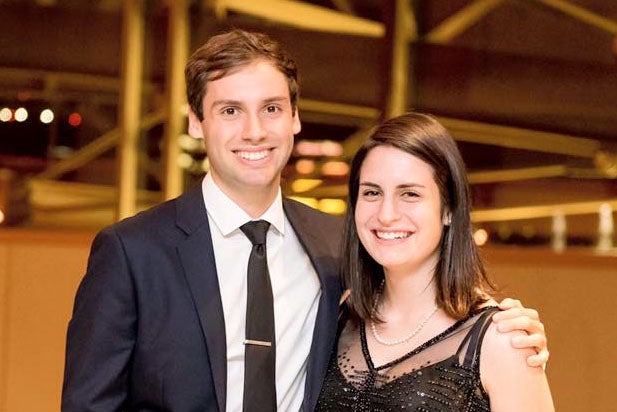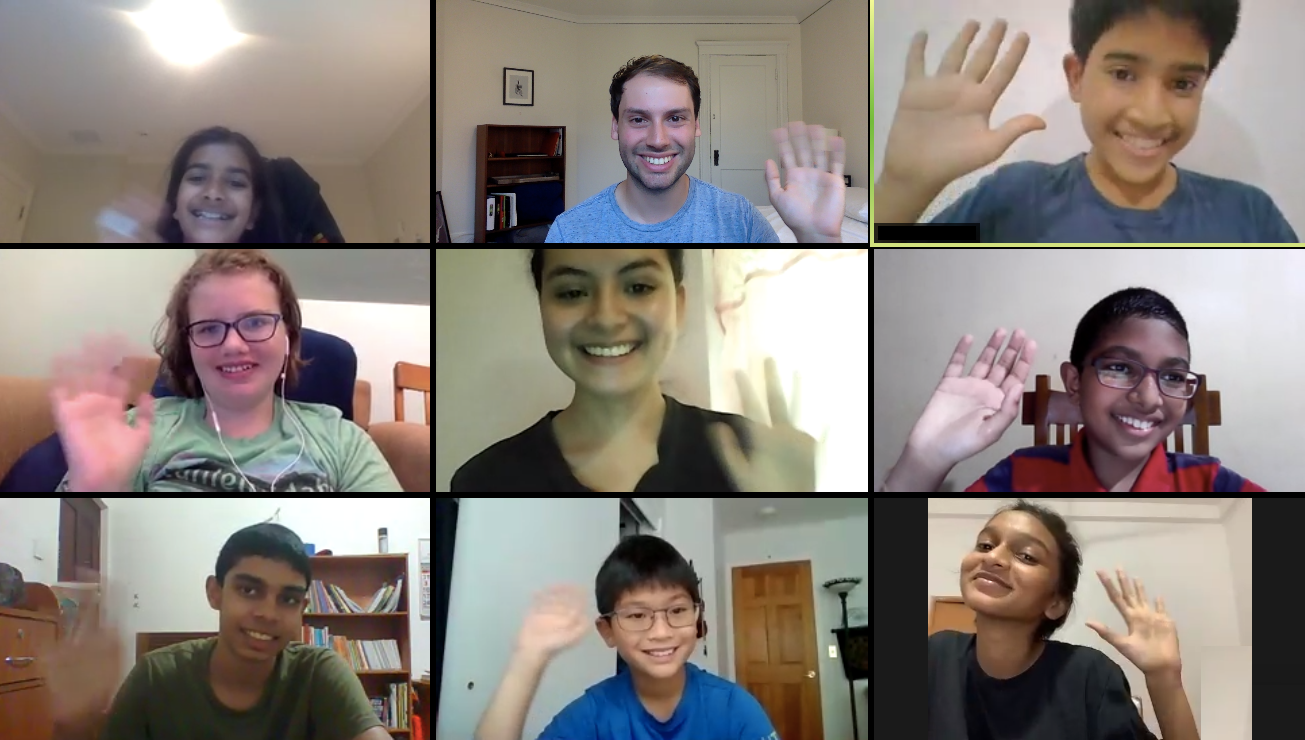After graduating from Bates College in 2015, Matt Summers ’21 taught English in South Africa on a Fulbright Scholarship. Living in Stellenbosch, known for its university and wine, he worked at a high school a few miles away in the less affluent township of Kaymandi. The inequality he saw in those few miles made Summers feel as if he were living in two different countries.
“On one side of town, you have vineyards and billionaires, and it looks a lot like you’re in the Netherlands, and then you cross a bridge, less than three miles away, and you are just in a completely different world,” said Summers, a third year Harvard Law School student. “There’s abject poverty, a totally different lifestyle and standard of living. I was living and working on opposite sides of that divide.”
Summers, who started debating in high school and was named Top Debator at the 2015 US Universities Debate Championship, wanted to help bridge the divide. So, he used his debating credentials to bring together middle school students from both sides of town through Debate Spaces, an afterschool program he launched where they learned debate skills, played games, and developed friendships.

When he returned to Boston — a city he notes also has a lot of challenges regarding inequality — in 2017, Summers wanted to continue the work he started in South Africa. “If we can, even in a small way, get kids to know each other before they’re too entrenched in their own little world,” he said. “When they’re young enough to more easily bump into somebody and make friends and laugh and get to know each other.”
Summers — with co-founder Tessa Holtzman, a student at the Harvard Kennedy School and a debate champion — created the U.S. version of Debate Spaces, an extracurricular program that connected middle school students from the Boston Public Schools with students from local private and suburban schools.
A typical Debate Spaces session includes drills and games; an interactive lecture on core debate skills; a lesson focused on a current event taught by an expert; and a student debate on real-world topics that middle school students would have heard about. Sometimes the topic can seem more abstract, such as a recent talk about state surveillance by a member of the social justice organization the Muslim Justice League, after which the students debated the question of privacy. Other times, the topic hits closer to home, like the reopening of schools during COVID.
One of the most important skills Summers and his colleagues teach students is to really understand the arguments made by the other side. Students may be assigned a side of a topic to debate with which they personally disagree. By representing that side as best as they can, the students explore what motivates people with a different point of view.
“If you watch the presidential debates, it’s people blasting each other,” said Summers. “We emphasize a very different kind of debate, one that acknowledges the other side’s good arguments and what they have to offer to the conversation.”

Students in the program are charged on a sliding scale according to income, with more than 50% of participants receiving a full scholarship. Debate Spaces has received support from the iLab at Harvard Innovation Labs, which provides physical and intellectual resources to students from any Harvard School looking to explore innovation and entrepreneurship. Summers said iLab has been “incredibly helpful,” providing funding, mentorship, and connection with other student-led ventures. Last year they were able to raise enough money to hire a program director. Thanks to the students’ efforts, Debate Spaces made the semifinals of Harvard’s President’s Innovation Challenge three times.
Debate Spaces changed again after COVID shutdown schools last spring, giving them an opportunity to expand outside the Boston area. “It opened a whole new world, where we could bring in students from over 20 countries,” said Summers. “We’re not just connecting people from across the city, we’re connecting people from Newton, Massachusetts, to students that are their age in Sri Lanka, or Pakistan or Poland. And that’s really been an incredible experience.”
This year, 200 students from 21 countries registered for Debate Spaces. In the next two years, they hope to reach 3,000 more, with the ambitious goal of half a million student participants in five years. To do this, they are expanding their team — in addition to a program director, Debate Spaces has added international fellows, who help develop curriculum, coach, and expand outreach. They are also creating a network of lawyers and law students for mentoring, fundraising, and spreading the word.
The nonprofit has also been able to tap into the tight-knit global debate community. Debate Spaces created a short video describing what they do and, almost overnight, 200 people signed up to volunteer as judges and instructors, and to spread the word about the program in their countries.
Summers, who graduates in May and will stay in Boston and clerk for Judge Michael Boudin ’64 on the U.S. Court of Appeals for the First Circuit, said people often think of debate as something that is a symbol of division. “But when we’re able to really think through what is motivating people that disagree with us, it builds empathy and can help us find middle ground. We understand what’s motivating them, and that’s something we can respect.”
